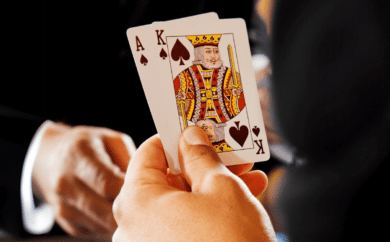£53 billion cash rewards have created over 7500 millionaires – since the National Lottery was first launched in 1994. Furthermore, it creates an average of 7 new millionaires every week. Unfortunately, criminals and fraudulent persons have taken advantage of this lottery’s popularity and created scams of their own.
In this guide, we delve into how to tell if a lottery is legitimate, how to win on lotteries, and tips on knowing if a lottery is a scam.
How legit lotteries work
- The state government operates cash lotteries to raise revenue for the state’s charity projects.
- People buy the tickets and can buy as much as they can.
- The National Lottery draws numbers on a random ticket, and participants check the numbers on their tickets to see if they match.
- The lottery prize depends on the numbers in your ticket that match the numbers drawn.
- The entire process is overseen by regulatory bodies like the UKGC to maximise transparency and fairness.
- Only people above the age of 16 can play the National Lottery in the United Kingdom.
What you can win with the matching numbers on your ticket
| Numbers matched on your ticket | Reward |
|---|---|
| 6 main numbers | Jackpot |
| 5 Main numbers plus the Bonus ball | £1,000,000 |
| 5 Main numbers | £1,750 |
| 4 Main numbers | £140 |
| 3 Main numbers | £30 |
| 2 Main numbers | FREE LUCKY DIP |
The National Lottery Syndicates
A lottery syndicate takes place when a group of players purchase lottery tickets together and share the cash reward or prize winnings. Usually, a syndicate involves friends, relatives, neighbours or colleagues.
There have been crazy stories online about people who demand a share of the prize after loaning their friends some money, and the friend wins a lottery.
For example:
In February 2024, a couple bought a lottery ticket together but broke up 3 weeks after winning £1 million. However, Mr Cartloifge (the boyfriend) said he sent money for two 5 Dice Tower games to Ms Cox (the girlfriend), and therefore, he is entitled to half the money.
In 2023, a woman went viral after refusing for her husband to split his lottery wins with his best friend, with whom he had bought the ticket.
How to run a lottery syndicate to avoid being ripped off
Lottery syndicates can be problematic if not organised with mutual respect. You can find advice on how to set up and ensure your lottery syndicate is seamless. Lottery fans can also find a template covering all vital points in planning a syndicate. It should include:
- Who will run the lottery syndicate (buying, claiming and sharing the prize).
- The player’s official names, what they have contributed to the ticket, the share they expect to win, signature and date.
- What will happen if someone decides to leave the syndicate?
- When to pay for the tickets and what happens if one of the members refuses to pay.
- How each member plans to receive their money.
How to identify a lottery scam
Knowing what to look out for in a lottery scam is important now that you know how an honest lottery works. What methods will scammers use to dupe you into playing a fake lottery? Here are some suspicious things to watch out for:
- Communication about winning a lottery that you have never entered. Usually, scammers use generic messages to make you click the message or email. You might see lines such as “ You are the winner” and “Congratulations for winning.”
- Lottery offers ask you to pay taxes, handle fees, etc.
- Emails where the sender tells you they’ve just won a lottery and cannot withdraw the wins themselves and that they need your assistance.
- Messages from inconsistent email addresses. Always check the email address from which the message comes to ensure it is legit.
- When you type the lottery name, it does not appear with an HTTPS. Remember never to click on a link in an email about lotteries, as it could easily be a phishing attempt.
- Confirm recognisable bodies license the lottery.
- If the lottery claims to be for charity purposes or good causes, research and do some background checks on the lottery and the respective charity to see if it is legit.
- Most lottery scams pressure people into acting quickly. They include a strict time limit on when you can buy the ticket and send repetitive messages or emails.
What to do if you suspect a lottery scam or if you’ve been scammed
You must act swiftly if you or someone you know has been scammed. Visit The National Lottery security page to report the scam or scammers. You can also add their security email addresses to your Safe Sender’s List or Email Address Book for faster communication.
If you believe someone has accessed your National Lottery Account or you want your report addressed more urgently, call security on 0333 234 44 33.




